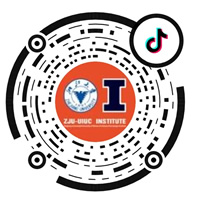1. Interdisciplinary Innovation
Today’s most important engineering challenges require expert teamwork across many disciplines. ZJUI students learn the deep knowledge and fundamentals that define their core discipline, and work together across all disciplines on design projects and comprehensive problems. Advanced classes in systems-oriented topics, student teams built around major international competitions, and visitors from all over the world help to demonstrate convergence and collaboration. Students are engaged in multidisciplinary engineering challenges from their very first semester. The engagement in design and in broad engineering challenges progresses throughout the curriculum. By their final year, students are organizing and working on multidiscipline design teams to invent a solution to a problem they have chosen.
2. Exceptional Education
- First-class faculty members are recruited worldwide. Faculty members from ZJU and UIUC also participate in our programs. The undergraduate student-faculty ratio at ZJUI is kept low to foster mentoring and active engagement.
- Faculty-student interaction is emphasized. Courses combine lectures, discussions, and experiments. Visitors and faculty are involved in an active seminar series. Laboratory facilities are built to follow the best global practices.
- We are seamlessly connected to our partners. Programs, curricula, core teaching materials, quality standards, and outcome-based evaluations are drawn from our partners. Each curriculum features a broad range of courses and meets general education requirements established by UIUC and by ZJU.
- First-term students participate in Introduction to Engineering. This course includes weekly seminars and team design project activities. Scientists and engineers from academia and industry worldwide are invited to give seminars to broaden student horizons. Student teams study broad design challenges, presenting their proposals to the full group.
- We value the integration of theory and practice. We seek to build scientific foundations and address broad technology applications. We use question-oriented learning, research, and practical training. Students participate in research projects both in the classroom and alongside faculty members and graduate students. We also provide a wide range of internship opportunities, and build our students’ capacity for innovation, invention, and entrepreneurship.
3. Residential college model and full-person education
The International Campus has a Residential College housing system. Each residential college provides a friendly and supportive learning-and-living environment. Each student has a private bedroom, shared bathroom, and common living space. Each College offers library facilities, study rooms, discussion and interactive spaces, laundry facilities, activity spaces, and fitness rooms. Each College becomes a close-knit community, serving as a microcosm of the diverse student population on the International Campus The Residential Colleges are significant in the everyday lives of ZJUI’s students. The colleges provide an exceptional opportunity to meet and learn from students, tutors, and professors with different interests – people students might not otherwise encounter in their courses or extracurricular activities.
The Master of the Residential College, Professor Lap-Chee Tsui, is a renowned educator who served as President of the University of Hong Kong for 12 years. The Fellows, Tutors and Counselors in each College seek to help students make the most of their learning experience, through general education, personal development, extracurricular activities, and events. The program seeks to help students become well-rounded people with knowledge, leadership skills, competence, creativity, morality, and individuality. A trained support team is available on campus 24 hours a day.
4. First-Class Campus
The International Campus provides faculty and students with a first-class environment for living and learning.
- Support and services are provided by the Campus Operation & Service Center and the Student Center.
- Teaching facilities include classrooms equipped with interactive integrated teaching systems, classrooms with flexible furniture and configurations, small meeting and discussion rooms, and world-class laboratories.
- Academic support through the library, outstanding information technology, and access to information and study facilities.
- Sports and activity facilities include music rooms, game rooms, a massive sports center, and student activity rooms.







